Mayo’s Clinic: Assessment Methods, Part I
 The first part in a three-part series discussing tried-and-true and novel assessment ideas, as well as common methods whose usefulness in your program might be dated. Plus, how to customize and apply lesser-known, but effective, assessment strategies to fit your program.
The first part in a three-part series discussing tried-and-true and novel assessment ideas, as well as common methods whose usefulness in your program might be dated. Plus, how to customize and apply lesser-known, but effective, assessment strategies to fit your program.
By Dr. Fred Mayo, CHE, CHT
Last month, we discussed maintaining a professional journal. This month as fall classes begin, we will talk about assessment since it is a critically important aspect of the work that we do. For the next two months, we will review various methods, and in two months, we will examine assessment criteria.
Purpose of Assessment
One of the gifts that we can give our students is to share our professional judgments of the quality of their work. Based on our best professional knowledge, the feedback that we can give our students helps them see their work more clearly, understand what they do well and learn what they need to improve. Providing those insights takes a commitment to be as objective and thorough as we can be in giving our students useful feedback.
Letter grades do not provide useful feedback. Comments in the margin of papers, corrected examination questions and detailed commentary on performance issues help students learn something. As faculty members, we need to think about which methods of assessment to use and which methods work best for which courses.

 These very simple techniques are not taught more often in a 50-minute context because the blanched or parboiled product is generally not ready for service by the end of class. But, says Chef Weiner, they’re important to teach for their contributions to cooking. Here, he explains how to best teach the procedures, with applications that can fit perfectly into 50 minutes.
These very simple techniques are not taught more often in a 50-minute context because the blanched or parboiled product is generally not ready for service by the end of class. But, says Chef Weiner, they’re important to teach for their contributions to cooking. Here, he explains how to best teach the procedures, with applications that can fit perfectly into 50 minutes.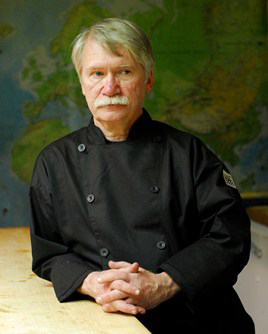 How adept are your faculty at integrating technology in the kitchen and classroom? Are you training and teaching them to understand issues relating to farming, processing, packaging and shipping of raw materials used in kitchens? Great teachers, like excellent employees in any field, thrive on self-improvement.
How adept are your faculty at integrating technology in the kitchen and classroom? Are you training and teaching them to understand issues relating to farming, processing, packaging and shipping of raw materials used in kitchens? Great teachers, like excellent employees in any field, thrive on self-improvement.
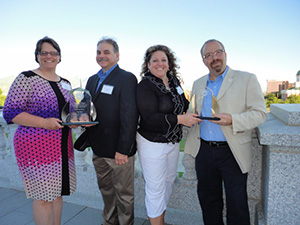 Foodservice educators across North America earn recognition for their creativity in the culinary classroom.
Foodservice educators across North America earn recognition for their creativity in the culinary classroom.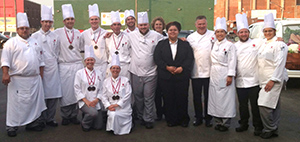 Baker College of Port Huron Culinary Institute of Michigan (CIM) students brought home five of the seven medals awarded to student culinarians at Detroit’s Eastern Market mystery basket competition recently. The competition was part of a fundraising event for Rising Stars Academy, a cooking school in Centerline for special-needs students ages 18-26.
Baker College of Port Huron Culinary Institute of Michigan (CIM) students brought home five of the seven medals awarded to student culinarians at Detroit’s Eastern Market mystery basket competition recently. The competition was part of a fundraising event for Rising Stars Academy, a cooking school in Centerline for special-needs students ages 18-26.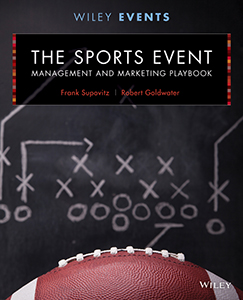 Flawless execution of sporting events is essential to keep audiences excited, viewers tuned in, participants engaged and sponsors fulfilled. As a sports-event planner, how do you keep up with the trends of the ticket-buying public, sponsorship and merchandising while at the same time attend to the hundreds of management and operational details required to effectively pull off the event?
Flawless execution of sporting events is essential to keep audiences excited, viewers tuned in, participants engaged and sponsors fulfilled. As a sports-event planner, how do you keep up with the trends of the ticket-buying public, sponsorship and merchandising while at the same time attend to the hundreds of management and operational details required to effectively pull off the event?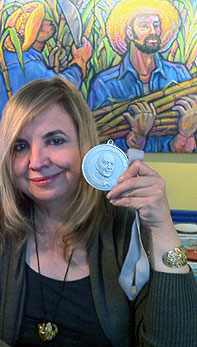 And with power comes responsibility, says this Hoboken chef, restaurateur, author, businesswoman and Latin cuisines historian.
And with power comes responsibility, says this Hoboken chef, restaurateur, author, businesswoman and Latin cuisines historian.